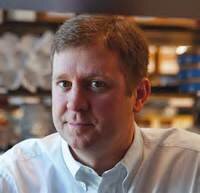
6th Annual Conference
2016
Philippa Marrack, Ph.D
Born in the United Kingdom, Marrack had just obtained her in B.A. in biochemistry from Cambridge University, and was about to start graduate work at 22 years old. But she attended an academic cocktail party, became slightly inebriated, and met Alan Munro, an up-and-coming immunology researcher who, she said, was "better looking" than her chosen mentor, whose lab investigated a different subject.
Munro chatted her up, discussing her great uncle John, an immunologist who had discovered an aspect of antibody function. Munro told her he thought it would be interesting to have a relative of John Marrack in his laboratory.
Kidding aside, Marrack concedes she decided to work with Munro because he was starting a laboratory at the prestigious Medical Research Council's Laboratory of Molecular Biology in Cambridge. The MRC then housed four Nobel Prize winners and was known for its free exchange of scientific information. Indeed, Marrack routinely lunched with Nobel Prize winner Francis Crick, the codiscoverer of DNA's structure, when she was there.
At the time, though, Marrack says there really was no way to predict that immunology would prove to be so rewarding to her professionally and personally. T cells, which would become the focus of her research, had only recently been discovered and little was known about their biology. How was she also to know that immunology would allow her to meet another important person in her life, John Kappler.
The two met as postdoctoral fellows in 1971 at the University of California, San Diego. Two years later they married, moved to the University of Rochester, established a joint laboratory, and have collaborated doing research about T cell biology ever since. They came to Denver in 1979 and have appointments at both the University of Colorado Health Sciences Center and National Jewish Health.
Ryan Brinkman, Ph.D
Since its inception, my research program has been entirely focused on developing automated methods for cytometry data analysis and applying them to medical genetics related research programs, mainly for methodologies for the correct and timely diagnosis of disease. Initial efforts focused on developing data standards for the technology. I coordinated these activities under the auspices of the International Society for Advancement of Cytometry (ISAC) for which I chair the Data Standards Task Force. This effort has resulted in the publication of standards for the technology, now being widely adopted by instrument vendors and third party software companies, including the ubiquitous FCS file standard. I then led projects that addressed bottlenecks presented by currently used manual analysis approaches and supplied the necessary computational infrastructure for a flow/mass cytometry-based automated data analysis pipeline. This includes a data pre- processing infrastructure that provides structures and methods for exploration of data (quality assurance, normalization, and plate-based analysis). I collaboratively developed the first robust clustering framework for automated FCM data analysis. I also developed five additional automated gating algorithms, another two additional approaches collaboratively and two synergistic software programs that identify and visualize the most important cell populations in comparative studies. In order to bring advanced FCM data analysis tools to experimentalists without programmatic skills, I developed the GenePattern Flow Cytometry Suite. In 2012 I launched the only public repository for FCM data under the auspices of the International Society for the Advancement of Cytometry. While the development of algorithms has been the focus, with the infrastructure now in place recent effort has focused on application of automated data analysis tools to answer questions exactly of the type that are the focus on this application, primarily what are the cell populations that are most associated with different clinical groups across different disease areas.
Michael Jordan, MD
Dr. Jordan graduated from the University of Texas Southwestern Medical School in 1993. After completing a pediatrics residency at the Children’s Hospital of Dallas in 1996, he began a Pediatric Hematology/Oncology fellowship at The Children’s Hospital, Denver, Colorado. After completing clinical training, Dr Jordan joined the laboratory of Drs. Philippa Marrack and John Kappler in 1997, where he studied T cell biology. In 2002, Dr Jordan became an Instructor of Pediatrics and in 2003 was named Assistant Professor at the University of Colorado Medical School. In 2004 he moved to Cincinnati Children’s Hospital/ University of Cincinnati, where he is currently an Associate Professor of Pediatrics in the divisions of Immunobiology, and Bone Marrow Transplantation and Immune Deficiency. The Jordan lab studies the pathophysiology and treatment of immune regulatory disorders, including LRBA deficiency and hemophagocytic lymphohistiocytosis.



